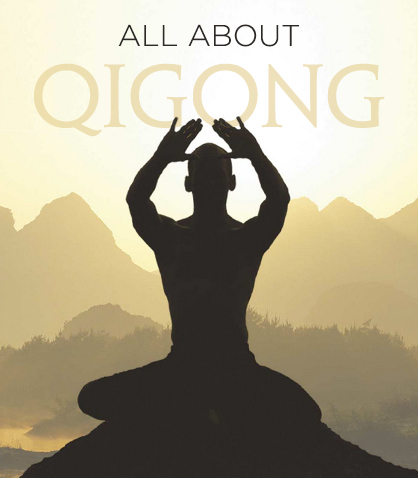Try It: Qigong
Qi what? Practioners of this ancient Chinese system of posture, breath and body awareness sell Qigong as restoring your self’s balance on all three levels:” jing” – body, “qi” – mind and “shen” – spirit. From channeling your energy to reducing stress, restoring vitality and increasing concentration, Qigong offers something for anyone trying to cultivate or balance her intrinsic life energy. Read on for the lowdown on Qigong.
The Basics
Qigong is an ancient health care system that integrates physical postures, breathing techniques and focused intention to restore health. The word comes from “Qi,” meaning life force, and “gong,” meaning skill that is cultivated through steady practice. Whether martial, medical or spiritual, the art involves a posture, either moving or stationary, breathing methods and mental focus to either increase Qi, circulate it, use it to heal the body or emit it to help heal others.
“Returning to the basics of proper posture, breath, biomechanics, and body awareness, Qigong provides a vehicle with which a person can return to a state of optimal health and wellbeing once again … The key word here is ‘return.’ In the grander scheme of things it is really we who have strayed from optimal health and wellbeing by our oftentimes less than beneficial lifestyle choices. We need to get back into balance and let the body do what it knows how to do,” Mark Reinhart, a Qigong teacher who has been engaged in the art for more than 50 years, said.
What It Can Do For You
The Chinese tradition emphasizes not treating specific conditions but rather “patterns of disharmony,” focusing on prevention and self healing. Chinese medicine seeks to rectify imbalances on the jing, qi and shen levels. Qigong’s gentle movements can reduce stress, build stamina and enhance the immune system, plus have also been found to improve cardiovascular, respiratory, circulatory, lymphatic and digestive functions. Practice this ancient technique to maintain health, heal your body, calm your mind and reconnect with your spirit.
“Nowadays many people sense that they are in some way out of balance; something isn't quite right,” Reinhart said. “They go to a healthcare provider where their signs and symptoms are matched up with a certain ‘word.’ The sad thing that I've seen much too frequently is that they then go about living up to the expectations of what it's like to have that ‘word.’ All we are trying to ascertain is how that person is out of balance. “
What to Expect
Not just a traditional exercise program, Qigong adds the dimension of the mind to the physical movements, involving the same meridian system used in acupuncture. By integrating these three aspects of our being, we can obtain a more positive outlook on life and eliminate harmful attitudes and behaviors.
“I have always equated Qigong cultivation with learning to play a musical instrument,” Reinhart explained. “Your results and benefits are directly proportional to the amount of time you invest. Rather than using the word ‘practice,’ I prefer the word ‘cultivation’ because that's what you're really doing. And just like any other art, there is no ultimate arrival point – the pursuit of the art is the reward! “
What Not To Expect
Qigong is not a quick fix; it requires cultivation time. While some benefits are immediate, true long-lasting change occurs only if you stick with it. “The paradox is that you begin to experience changes only after you stop looking for them and just do your cultivation. People in the United States just can't seem to, or don't want to, embrace the concept of slowing down and exist under the illusion that by spiraling their lives out of control they are being more productive,” Reinhart said.
One Woman’s Story
Andrea was suffering from fibromyalgia, taking medicine for pain every four to six hours. Then she discovered Qigong, attending about three classes per week and practicing at home. A year and a half later, she had completely stopped taking her medication. Today she lives a full life, cleaning houses and attending classes. “All I did was to guide her along the way. ALL healing starts with the self. We're just guides,” Reinhart, who was her first initial contact with the healing methodology, said.
How to Start
Able to be practiced anywhere at any time, Qigong is highly accessible, appealing to all regardless of age, ability or life circumstance. The number of styles and systems of Qigong, however, are so extensive that a new student may find it frustrating or bewildering at first. Try the National Qigong Association, a nonprofit umbrella organization that offers a member/teacher resource. The best way, if possible, is to sit in on a class and find a teacher that truly resonates.
“Quite honestly, you need to devote time and energy to anything before you can determine if it's right for you or not.” Reinhart said. “How many guitar lessons would you take before you decided if it was right for you? I usually tell new students that you will need to devote some time to qigong – I usually suggest three months to 12 weeks – or any developmental practice for that matter.”
For more information, visit nqa.org.
Tagged in: health, energy, chi, qigong, qi, national qigong association,

LadyLUX



